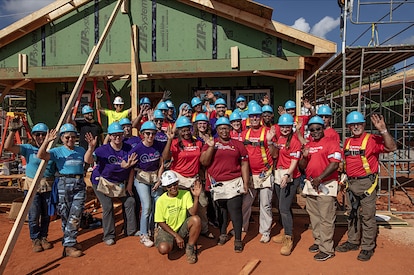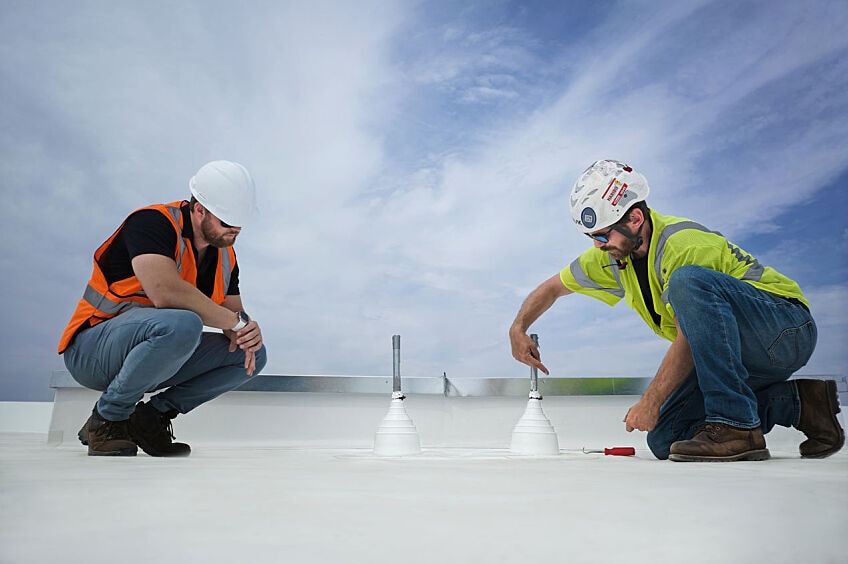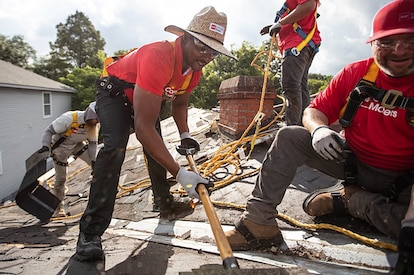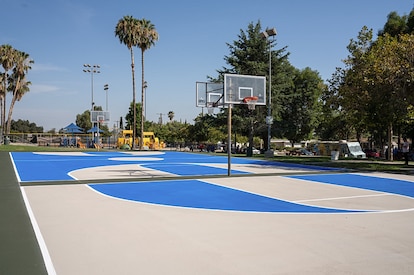
If your commercial building needs a new roof or repair, it might be time to call in a professional roofer. You might have a few contractors in your area, so knowing what questions to ask a roofer can help you find the right one for the job. In addition to requesting examples of their past work, here are eight questions to ask a roofing contractor before hiring them.
1. Are You Licensed and Insured?
Not all states require licensing but many do, and you'll want to see proof that the contractor is licensed in the state they'll be performing work for you.
In many cases, roofing contractors who advertise their services are required to include their license number in the advertisement. Most states that require licensing have online portals where you can verify that the contractor's license is in good standing.
Insurance is also important, as sometimes not all jobs go smoothly. The contractor should be covered in case an unfortunate incident occurs.
2. Does Your Company Hold Manufacturer Certifications?
Roofing manufacturers may offer several certification levels, helping you know what level of service and experience to expect. For instance, GAF Master Select contractors are required to complete ongoing training and be properly licensed and insured. Additionally, they must have at least $1 million in general liability insurance coverage and a satisfactory Better Business Bureau rating, among other requirements.
Not every contractor can achieve certification. In fact, only 1% of roofing contractors in the US achieve the GAF Master Select status. This status means the contractor has been vetted by the manufacturer, meets strict requirements for quality control and can potentially offer enhanced warranties on roofing systems.
3. Are Your Workers Certified?
Many training programs and certifications are available for roofing installers, such as the National Roofing Contractors Association ProCertification® training program and the GAF CARE Contractor Training Center.
You want to be sure the people working on your roof understand the proper repair and installation methods for your roofing system. Seeing what certifications they hold can confirm their roofing knowledge and familiarity with the products you're looking to install.
4. Is Your Company a Member of Any Industry Associations?
Membership in an industry association can demonstrate a roofing contractor's professionalism and commitment to their industry. In addition to regional, state, or national roofing associations, some commercial roofing contractors belong to associations designed for building owners and facility managers, such as the Building Owners and Managers Association or the International Facility Managers Association.
If you're a member of either of these organizations, your membership list could be a good place to start your search for a commercial roofer.
5. What Is Your Project Timeline and Process?
The contractor should consider all aspects of your project when planning it. Ensure they'll install quality roofing systems and solutions, and share any concerns you may have—before work begins. For instance, you may be concerned about how construction may affect building occupants, including noise levels and parking. Your contractor should be able to review a plan with you that addresses these concerns.
They should also give you a project timeline from start to completion and be able to explain their process, which can include:
- Initial site inspection
- Repair or replacement recommendations
- Estimate development
- Project timeline
- Plans to minimize disruptions
- How they'll handle and communicate unexpected issues
- Warranty options
6. How Do I Prepare for the Roofing Project?
Determine if you need to take any steps to prepare for the project. For example, your contractor should suggest how to inform building occupants about the upcoming work and how long it will last. Also, if you have neighbors close by or share parking lots, they'll need to be notified too.
Every project and building is different, so other preparations may need to happen before the project begins. Your contractor can identify any additional needs as part of their inspection and planning process. In most cases, the contractor will handle precautions—like roping off parking areas or protecting landscaping—and they should communicate that to you before your project begins.
7. How Much Will the Project Cost? Are There Contingencies?
Most commercial roofing contractors include the project cost in their bid package, but you should also ask about contingencies. A contingency is typically a small percentage of the total project cost that may be included to cover surprises during a roofing project, such as mold or rot. Making unexpected repairs will increase the project's cost. So, understand whether a contingency is included in your estimate so you can financially prepare.
8. Do You Have a Maintenance Program for Repair Work?
Once your roof has been installed, it's important to take care of it. Ask the contractor if they offer a maintenance program that includes an annual inspection of your roof. This is a great way to assess the health of your roof after a year's worth of weather. Any issues can be addressed before they turn into larger problems.
By having a maintenance program in place, you can build a lasting relationship with your commercial roofing contractor and may even be able to extend your roof's warranty. If your contractor participates as a GAF Certified Maintenance Professional® you could be eligible for a 25% warranty extension with the completion of required inspections and proper documentation.
Signing with a Commercial Roofing Contractor
Knowing what to look for when hiring a roofer is the first step toward a successful project. Now that you know some of the questions to ask a roofer, interviewing them should be more straightforward. Their answers can help you decide if they're the right fit for your project. Keep in mind that it's wise to meet with and interview multiple commercial roofing contractors before signing a contract.
Ready to take the next step? Find roofing contractors certified by GAF* in your area and schedule a time to talk about the commercial work you need completed.
*Contractors enrolled in GAF certification programs are not employees or agents of GAF, and GAF does not control or otherwise supervise these independent businesses. Contractors may receive benefits, such as loyalty rewards points and discounts on marketing tools from GAF for participating in the program and offering GAF enhanced warranties, which require the use of a minimum amount of GAF products. Your dealings with a Contractor, and any services they provide to you, are subject to the GAF Contractor Terms of Use.



